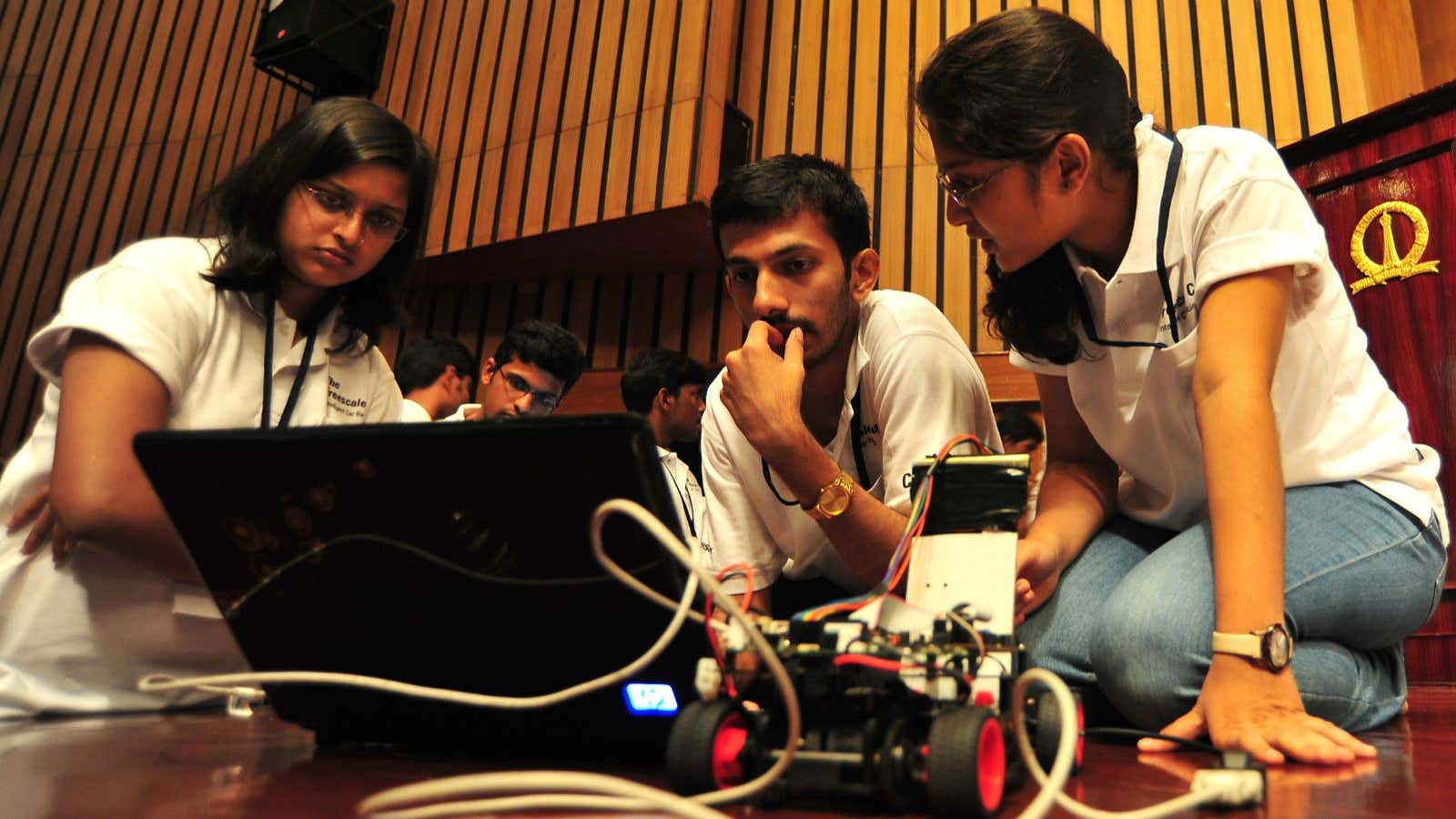No one disputes that Facebook’s Mark Zuckerberg and Google’s Eric Schmidt built their careers—and fortunes—on their technical know-how. But their successes wouldn’t have occurred if they hadn’t pursued softer subjects like psychology and international relations.
Technological innovation requires fusing science, technology, engineering, and mathematics (STEM) with humanities, Alec Ross, one-time innovation advisor to former Secretary of State Hillary Clinton and Industries of the Future author, told Quartz. STEM students would do well to broaden their horizons.
Zuckerberg, who famously launched Facebook out of his Harvard dormitory, studied computer science, but he also majored in psychology at the Ivy-league college. It was his understanding of the human psyche that made the social network such a success, Ross argues, because it shaped the user experience of the platform.
Schmidt, the former Google CEO who is now executive chairman of parent company Alphabet, holds a PhD in computer science. But it was Schmidt’s immersion in international relations late in his career that truly allowed to Google thrive on the global stage, Ross said.
“These things are largely undernoted and insufficiently appreciated,” said Ross, who will speak about how to foster innovation in children at the 92Y’s “Seven Days of Genius” festival in New York, New York on Sunday (Mar. 6). “These kind of attributes demonstrated by people like Mark and Eric are going to be increasingly necessary in tomorrow’s world.”
As industries such as artificial intelligence, robotics, cybersecurity, and genomics mature, people with diverse backgrounds will likely be the ones who understand how to put those technologies to use. And, thanks to globalization, innovation won’t just come from developed world.
Apps like Grainy Bunch and iCow are revolutionizing farming and agriculture in Africa. Grainy Bunch was built by a computer programmer in Tanzania who used his technical skills and knowledge of supply chains to create an app that monitors purchase, storage, distribution, and consumption of grain across the country. And the messaging app iCow was built by a woman in Kenya to help dairy farmers stay on top of their cows’ milking and menstruating schedules, as well as the local dairy market.
Having a breadth of skills will also help young people in the developed world compete in the global workforce. Ross predicts blue- and white-collar jobs in high-cost markets like the US will be replaced by robots and artificial intelligence in the next decade. Jobs requiring emotional intelligence won’t go to machines, he says.
“People who have an understanding of that which is scientific and technological and combine that with the main expertise in what can broadly be called the humanities—communication, behavioral psychology and the like—those are the folks who are really going to make it in tomorrow’s world,” he said.
